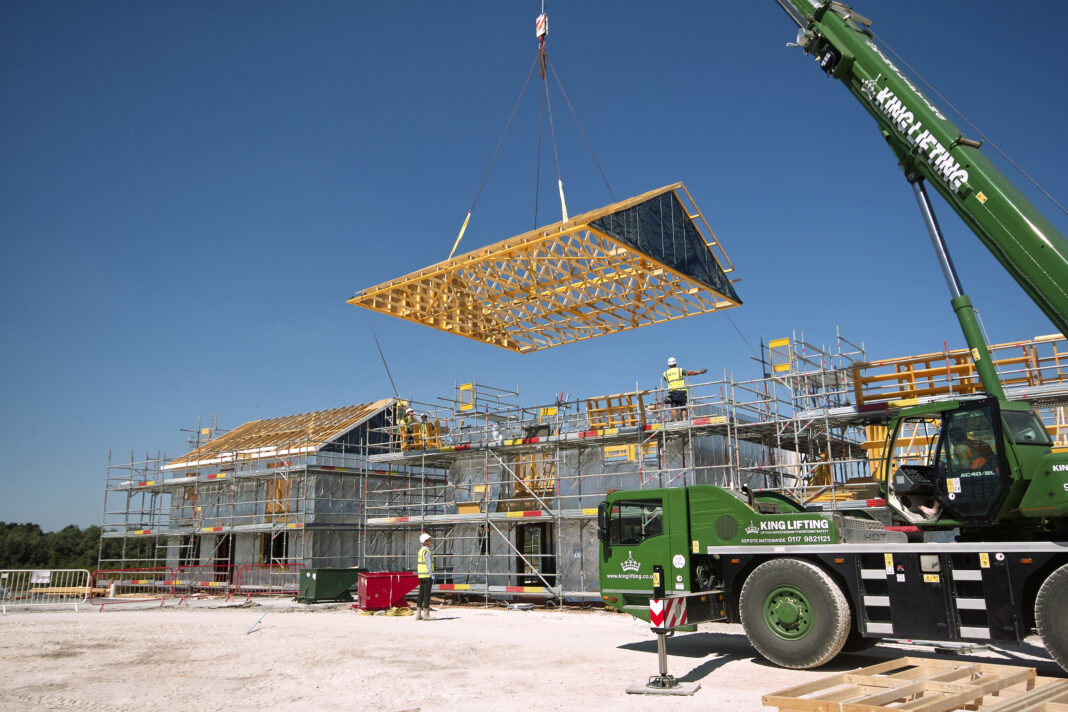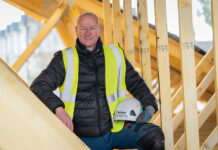
By Stewart Dalgarno, AIMCH project director and director of product development at Stewart Milne Group
THE global pandemic will have a wide-reaching impact on us all. It is difficult to see how any industry sector will come through this unscathed and without re-examining how to do things differently. What will be important is that we emerge stronger and more resilient, and open to new innovative ways of working.
As the housebuilding industry begins to return to work, sites re-open, and companies re-examine their business strategies and models, it will become even more important to embrace new technologies and processes to ensure the restart and future development of the sector is done in a way that it can thrive long term.
With most construction sites having been on pause, efficient delivery will be vital as the industry restarts and grows. Particularly as the demand for more high quality, cost effective housing, that can be quickly and efficiently built, has never been more acute and will only build going forward.
During this global health crisis, our homes have provided a safe haven, a place to work and for many, a place of education. The need to deliver more homes, quickly and cost effectively will be essential in tackling the growing UK housing crisis, but it is vital that we are not simply back building, but instead building better homes.
Key to this will be to embrace modern methods of construction, such as panelised offsite construction systems and lean construction, in a more integrated way capitalising on digital technologies and advanced manufacturing.
The Advanced Industrialised Methods for the Construction of Homes (AIMCH) project started 18 months ago to trial solutions that could help to tackle the UK housing crisis by mainstreaming the use of these methods and lean technologies.
At that time, the consortium set out to transform how the construction industry builds homes to meet current and future demands. Today we are almost halfway through the three-year project, and more than ever, we are convinced that modern methods of construction, such as offsite panelised systems and digital working, offer unrivalled benefits, especially as we find our way through and out of this current crisis.
Getting back to work
The fast delivery of much-needed housing is critical. However as the industry reopens, construction sites face operational restrictions. With less labour resource onsite, the potential reduction in the supply of materials, coupled with the physical challenges of getting them onsite, and maintaining social distancing safety measures, it will be some time before productivity is at the level is was pre-lockdown, never mind the level it needs to be at to tackle the growing UK housing crisis.
Offsite panelised construction offers a way forward and a viable solution, which is less labour intensive, with fewer personnel on site, unlike traditional building methods.
As part of the AIMCH project pre Covid-19, partners have been undertaking productivity measurement studies, using time and motion and more innovative blue-tooth enabled tracking of operatives to monitor site efficiency or traditional and a variety of MMC systems. This technology has potential to monitor safe social distancing, providing useful data on worker compliance social distancing and site operating guidelines.
Bringing panelised offsite systems on to sites can also aid a quicker and more efficient delivery of homes. AIMCH has been assessing the benefits of standardisation. Through research studies, the partners are now developing a suite of standardised product families, that can be configured and used within future housing pattern books. Providing a digitally enabled, efficient and cost-effective home designs that can be built fast to higher quality standards with less labour input. Homes can be externally finished using conventional materials, to provide robust, durable and beautiful homes, to suit any planning or aesthetic requirement.
Modern methods of construction, such as offsite panelised building systems, helps business recover through securing a more integrated and robust supply chain, by adopting a manufacturing led approach, which can be scaled up quickly to meet demand.
The AIMCH project has utilised automotive learning from around the world, to develop advanced manufacturing approaches, such as simulation, to build a model of the ‘future offsite factory’ where digital technology and automation, such as robotics, drives productivity lowering production costs and increasing capacity. The mathematical model and simulation program under development, will enable robust assessment and validation of future MMC investments, which will be crucial as the industry, housebuilders and businesses reset, recover and re-plan the future, during these uncertain economic times post Covid-19.
Through industrialising housing, embracing modern methods of construction, the AIMCH solution will help attract new talent with digital, logistics, engineering, design, robotics and project management skills, making the sector more appealing to a wider employee pool. With more automation in a factory setting, digital working, integrated supply chains, lean construction assembly and with staff collaborating with onsite teams, the greater efficiencies achieved will support the construction of the additional 120,000 homes needed each year to address the UK housing shortage. That’s a challenge that the housebuilding sector simply can’t meet using traditional construction methods alone.
Offering integrated supply chain solutions, increased efficiencies, greater collaboration, increased productivity and commercially competitive mainstream offsite panelised construction methods, the AIMCH project has a significant role to play in the post-Covid recovery, with offsite construction becoming the new normal in the sector.








